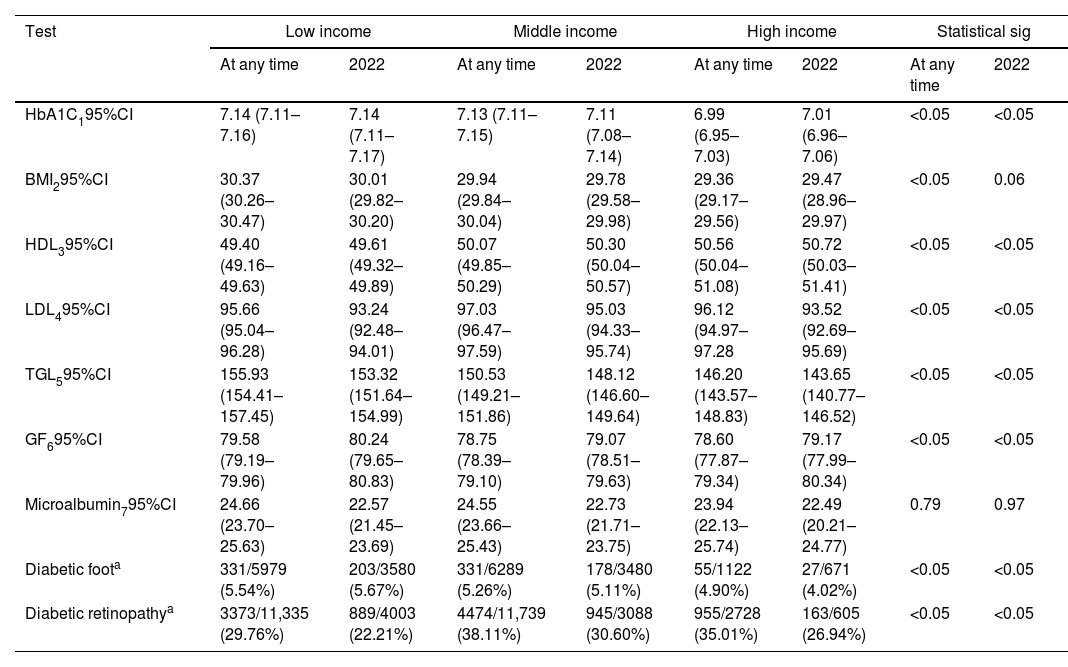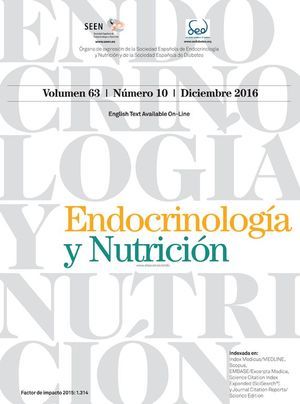The prevalence of diabetes mellitus (DM) has increased in low- and middle-income countries and in marginal areas of developed countries. In Spain, it grew by 3.42% from 1993 to 2020. In the Canary Islands, the increase was even greater.
ObjectivesThe main one was to evaluate the possible relationship of the income level with DM, different markers of metabolic control and the use of Primary Care services, in Las Palmas de Gran Canaria (LPGC). Secondary ones are to determine the prevalence of DM in the city of LPGC, to describe the sociodemographic characteristics, the use of Primary Care services of the population with DM, the level of registry of variables related to metabolic control and the main process indicators and intermediate results of the metabolic control in the population with DM in the city of LPGC.
Material and methodAll patients with DM over 14 years of age, living in LPGC as of 12/31/22 were included. Data were collected from the electronic medical records of the Canarian Primary Care Service, the National Institute of Statistics and the National Tax Agency.
Results and conclusionThe overall prevalence of DM was 11.39%. The mean age of participants was 67.06 years (SD=13.86), lower in men than in women. The groups with low or moderate income accounted for more than 40% of the prevalence each, while those with high income barely accounted for 10%. Higher income levels corresponded to lower use of health resources and registration of metabolic variables, while decreasing income levels were associated to higher prevalence of overweight/obesity, worse lipid and glycemic profiles and higher risk of diabetic foot. The middle-income group showed the highest prevalence of pathological/uncertain diabetic retinopathy, lower glomerular filtration and higher LDL levels.
La prevalencia de diabetes mellitus (DM) ha aumentado en países de ingresos bajos y medios y en zonas marginales de países desarrollados. En España creció un 3,42% de 1993 a 2020. En Canarias el aumento fue aún mayor.
ObjetivosEl principal es evaluar la posible relación del nivel de ingresos con la DM, diferentes marcadores de control metabólico y el uso de los servicios de Atención Primaria, en Las Palmas de Gran Canaria (LPGC). Los secundarios son determinar la prevalencia de DM en la ciudad de LPGC, describir las características sociodemográficas, la utilización de los servicios de Atención Primaria de la población con DM, el nivel de registro de variables relacionadas con el control metabólico y los principales indicadores de proceso y resultados intermedios del control metabólico en la población con DM de dicha ciudad.
Material y métodosSe incluyeron todos los pacientes con DM mayores de 14 años, residentes en LPGC el 31/12/22. Los datos se recogieron de la historia clínica electrónica del Servicio Canario de Atención Primaria, del Instituto Nacional de Estadística y de la Agencia Tributaria Nacional.
Resultados y conclusiónLa prevalencia global de DM fue del 11,39%. La edad media de los participantes fue 67,06 años (DE=13,86), menor en hombres que en mujeres. Los grupos de ingresos bajos o moderados representaron más del 40% de la prevalencia cada uno, mientras que los de ingresos altos apenas representaron el 10%. Los mayores niveles de ingresos correspondieron a un menor uso de recursos sanitarios y de registro de variables metabólicas, mientras que los menores niveles de ingresos se asociaron con una mayor prevalencia de sobrepeso u obesidad, peores perfiles lipídicos y glucémicos y mayor riesgo de pie diabético. El grupo de ingresos medios mostró la mayor prevalencia de retinopatía diabética patológica o incierta, menor filtración glomerular y niveles más altos de LDL.
Artículo
Comprando el artículo el PDF del mismo podrá ser descargado
Precio 19,34 €
Comprar ahora











